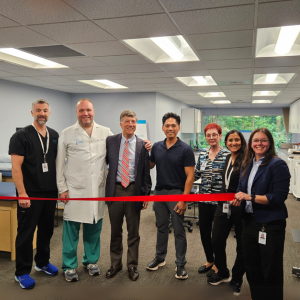
Whether you’re a seasoned runner or just getting started, learn how to enhance your running experience and stay on the right track. Chris Turuta, Manager of Physical and Occupational Therapy and a licensed physical therapist at OAM Huntington, shares tips on preventing running injuries and recognizing the warning signs of overtraining. He also provides a program to guide you on your journey back to running.
Injury Prevention Tips:
– Gradual increases in running time / miles (10% rule)
– Be careful of excessive downhill running
– Reasonable amount of fast paced running
– Adequate rest between workouts
– Fewer hard surface runs
– Proper eating / sleeping
– Avoidance of complete fatigue
– Develop stronger tissues – strength training
– WARM UP/STRETCH
– 80% of running injuries are caused by too much of an increase in mileage
– The cardiovascular system adjusts to stress quicker than the joints
– Joggers/runners should increase their total weekly running amount by no more than 10%
– Get a good pair of running sneakers and change them every 300-400 miles
– Run on soft, flat surfaces whenever possible. Treadmill training is fine
– Cross train and include strength training of upper and lower body
– Maintain or achieve ideal body weight to minimize joint stress
– COOL DOWN/STRETCH
Warning Signs of Overtraining:
– Difficulty performing typical workouts for more than a week
– Excessive fatigue
– Higher resting heart rate
– Decreased appetite
– Sorer muscles
– Troubled sleep
– Irritability
– Increased perspiration
– Decreased desire to train
Return to Running Program:
– Walking program
– Plyometric program
– Walk /Jog progression
– Timed Running Schedule






